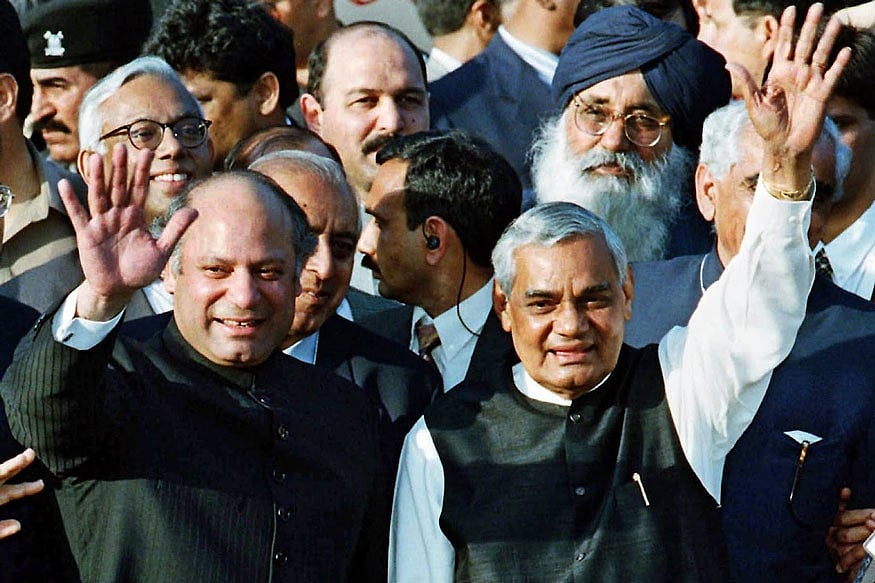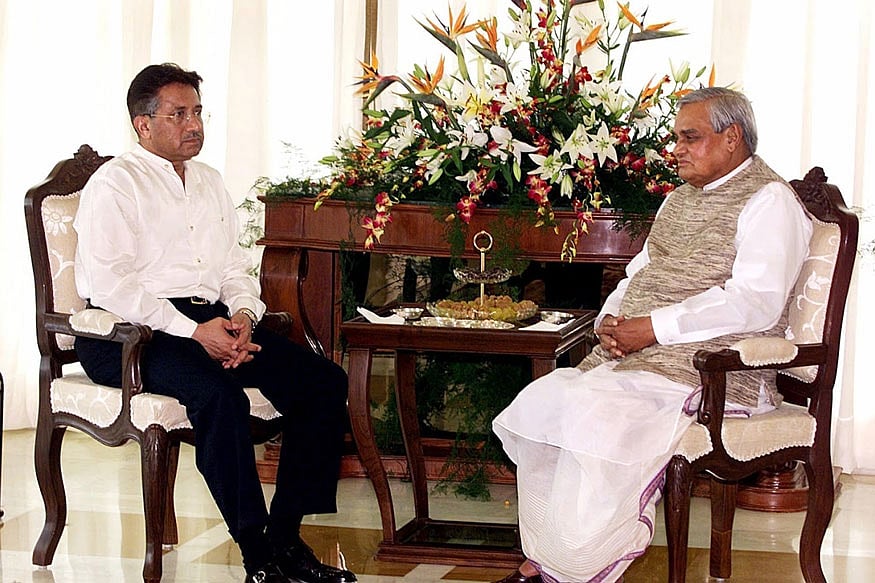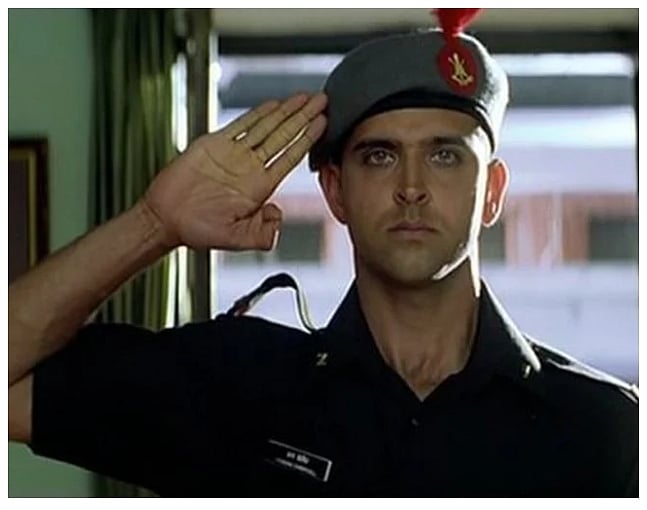It was the year 1999, and Prime Minister Atal Bihari Vajpayee had just taken a bus to Lahore in Pakistan. Many saw this as a gesture of goodwill, and an attempt to broker peace, as the Indian leader took a bus from Amritsar to Lahore, and was photographed hugging his Pakistani counterpart.
He had called it a “defining moment” and most would have agreed. The delegation included actor Dev Anand, writer Javed Akhtar and cricketer Kapil Dev, and their primary aim was to seek “abiding peace and harmony with Pakistan”. The Lahore Declaration was signed after this meeting.
“I am conscious that this is a defining moment in South Asian history and I hope we will be able to rise to the challenge," Atal Bihar Vajpayee had said on his arrival in Lahore.

Photo: PTI |
If you look at history however, you already know that Pakistan did not seem to be thus inclined. Not long after the meeting, India was locked in an armed conflict with Pakistani troops. Code-named Operation Vijay, it began after Pakistani soldiers pretending to be Kashmiri militants infiltrated the Line of Control.
Now, a bit of a side-note. At the time of the War, Nawaz Sharif had been the Prime Minister of Pakistan, while the Pakistani Army had been led by the Chairman of the Joint Chiefs of Staff Committee, General Pervez Musharraf. Following the Kargil War, the two would go on to hold each other responsible for the events that took place. Each had also alleged that the other was falsifying the narrative and lying by omission.
However, it must be noted that there have been many who claim that it was Pakistani Army officials who had begun the instigation. It is probably not far-fetched then to link Army leader Musharraf to the decision. In June 1999, as the war raged, India had released documents and intercepted conversations that reinforced the claim that Pakistan, and more specifically the Army was involved in the fray.
Internationally, the neighbouring country was not viewed favourably over the situation. Pakistan faced global pressure, with the then US President Bill Clinton persuading Pakistani Prime Minister Nawaz Sharif to pull out from Kargil in early July via a telephonic conversation. The Kargil War officially ended on July 26.
According to an Indian Express article available in the MEA archives that quotes excerpts from a paper by Bruce Riedel, a director on the Bill Clinton administration's National Security Council, the conflict saw “furious artillery clashes, air battles and costly infantry assaults by Indian troops against well dug-in Pakistani forces. Pakistan denied its troops were involved, claiming that only Kashmiri militants were doing the fighting — a claim not taken seriously anywhere.”
Again, as history books or an internet search will tell you, this was not the end. Pakistan soon underwent a political upheaval, with Musharraf upstaging Sharif in a bloodless coup d'état. A year later incidentally, Vajpayee would meet with the new leader, President Musharraf, for the ultimately unsuccessful Agra talks.
While the spirit of goodwill at the time of the Lahore Declaration seems to have been wrecked early on, the Declaration itself might have come close to violation. An exiled Nawaz Sharif later claimed in his official biography that the Pakistani Army – led by General Pervez Musharraf – had moved nuclear warheads for use against India during the Kargil War.
"During my post-Kargil misadventure meeting with American President (Bill) Clinton, I was told by the American leader that the nuclear warheads had been shifted from one station to the other during the Kargil War. I was taken aback by this revelation because I knew nothing about it,” he was quoted as saying in the biography titled Ghadaar Kaun? Nawaz Sharif Ki Kahani, Unki Zubani. Perhaps understatedly, Sharif calls this “a very irresponsible thing to do”. Sharif also claims that Musharraf had “begged” him to involve the US.
But as we mentioned earlier, the two Pakistani leaders have continued to blame each other, and thus, quite naturally, Musharraf’s memoirs, "In the Line of Fire: A Memoir" are a tad contradictory, claiming that from a military standpoint, “the Kargil operations were a landmark in the history of the Pakistan Army”. In the same, vein, the memoirs ignore many facets of the war that have now been accepted by most as fact – preferring to recount its own version of history.
But, while Musharraf claims that everything Pakistan did was purely defensive, and in response to India’s actions, he also claims that the Pakistani Army had moved to support militants who had occupied the some of the elevated areas.
(With inputs from agencies)


